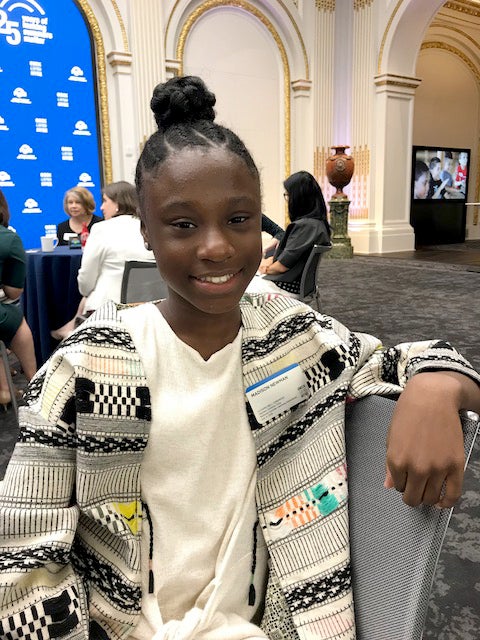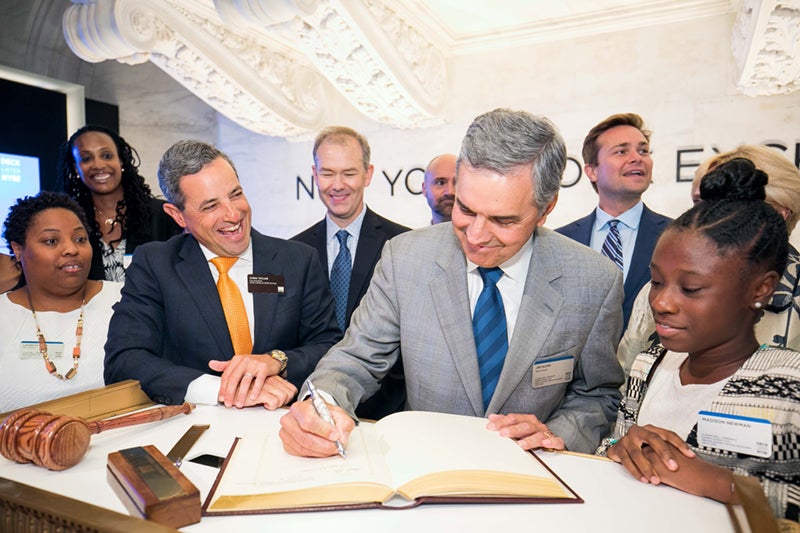Most summer days, you can find 12-year-old Madison Newman at a camp run through New York City’s Madison Square Boys & Girls Club. She and the other kids enrolled take classes and participate in a range of activities. Sometimes they go on group field trips to libraries or museums.
But on one hot Monday in July, Madison left her fellow campers in the Bronx to travel into Manhattan, with her mother in tow. She was all dressed up and headed downtown to ring the closing bell at the New York Stock Exchange to help kick off the National Summer Learning Association’s annual Summer Learning Day.

“It’s really exciting here!” said Madison, who during the year attends the Young Women’s Leadership School of the Bronx. She was busy soaking up conversations in the gilded halls of the board room at the stock exchange. Earlier she’d given a reading from the book Trombone Shorty backed by an actual trombonist. Her summer group had read the autobiography about a young jazz player, which is the official read-aloud book of this year’s Summer Learning Day.
Madison was also the lead in a play about bullying earlier in the summer. “We were doing the play so we’d learn how sticking up for each other shows leadership, and how more violence is not the answer,” she said, adding that the program always focuses on “things you can use in life, like respecting people, respecting yourself and taking care of yourself.”

Just before being escorted downstairs to the iconic floor of the exchange, Madison shared a final thought about summer learning and how it might influence her life. “We were talking the other day about the army and how their budget was $600 billion versus $67 billion for children,” she said. “Imagine if that were the other way around? How much better that would be for kids.”
In case you’re wondering, her numbers weren’t far off. Based on 2018 projections released by the U.S. government, spending on military defense is roughly $648 billion, while total spending on education comes in at $111 billion, of which about 40 billion goes to pre-primary through secondary education.

“So for me, what I want to do in five or 10 years?” Madison said. “I want to try and open up a foundation or something to help summer programs and schools get more of the money.”
Minutes later she stood at the center of the world’s global markets bringing the day’s trading to a close. Her goal seemed entirely possible.
* * *
For more on the effects of voluntary summer learning programs and other research and reports visit the Summer Learning section at our Knowledge Center.




